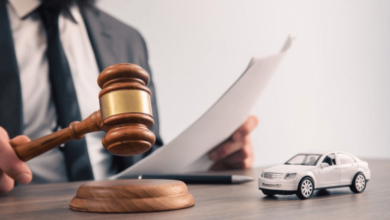What Florida Car Accident Victims Should Know About Compensation Rights

Being involved in a car accident can be a life-altering event. For Florida accident victims, the aftermath of a collision often brings physical pain, emotional stress, and mounting medical bills. Understanding your compensation rights is essential in ensuring you are not left bearing the financial burden of someone else’s negligence. Florida has specific laws and processes that govern accident claims, and knowing how they apply can help protect your legal and financial interests.
Florida Is a No-Fault State – What That Means for Victims
One of the most important things Florida accident victims should understand is that Florida follows a no-fault insurance system. This means that after most car accidents, your own Personal Injury Protection (PIP) insurance covers your medical expenses and lost wages, regardless of who caused the crash.
Under Florida law, all drivers are required to carry:
- $10,000 in PIP coverage
- $10,000 in Property Damage Liability (PDL)
PIP covers:
- 80% of necessary medical expenses
- 60% of lost income
- $5,000 in death benefits (in the case of fatal accidents)
However, while PIP can help with immediate costs, it often falls short when injuries are severe. In such cases, you may step outside the no-fault system and pursue a liability claim against the at-fault driver.
When Can You File a Lawsuit Against the At-Fault Driver?
Florida law allows accident victims to file a personal injury lawsuit if the injuries meet a certain threshold. This typically includes:
- Significant and permanent loss of a bodily function
- Permanent injury
- Significant and permanent scarring or disfigurement
- Death
If your injuries meet this threshold, you may pursue compensation for damages not covered by PIP, such as:
- Pain and suffering
- Emotional distress
- Future medical care
- Loss of consortium (impact on relationships)
- Full lost wages beyond PIP limits
See also: The Power of Video Ads in Reaching Diverse Audiences
Proving Negligence in a Florida Car Accident
If you are eligible to file a lawsuit, you must prove that the other party was negligent. This involves showing:
- The other driver had a duty of care (e.g., obeying traffic laws)
- They breached that duty (e.g., by texting while driving)
- The breach caused the accident
- You suffered damages as a result
Police reports, witness statements, medical records, and accident reconstruction experts may all play a role in supporting your claim.
Comparative Fault in Florida
As of March 2023, Florida adopted a modified comparative negligence system. Under this rule, accident victims can recover compensation only if they are found to be 50% or less at fault for the accident. If you are more than 50% responsible, you are barred from recovery.
If you are partially at fault, your compensation will be reduced by your percentage of fault. For example, if your damages are $100,000 but you are found 30% at fault, you would recover $70,000.
Types of Compensation Available
Florida accident victims may be entitled to several types of compensation, including:
1. Economic Damages
- Medical bills (past and future)
- Lost income and earning capacity
- Property damage (vehicle repairs or replacement)
- Out-of-pocket expenses (transportation, rehabilitation, etc.)
2. Non-Economic Damages
- Pain and suffering
- Emotional trauma
- Loss of enjoyment of life
3. Punitive Damages
In rare cases involving gross negligence or intentional harm (e.g., DUI), the court may award punitive damages to punish the wrongdoer and deter similar behavior.
Time Limits: Florida’s Statute of Limitations
Time is critical. As of 2023, the statute of limitations for filing a personal injury lawsuit in Florida is two years from the date of the accident. Failing to file within this time frame can result in losing your right to seek compensation.
If a government vehicle was involved, you may need to file a notice of claim within a shorter period, so it’s essential to act quickly.
Working with a Personal Injury Attorney
Navigating the legal process as a car accident victim can be overwhelming, especially while recovering from injuries. An experienced personal injury attorney can:
- Evaluate your case
- Handle insurance negotiations
- Gather critical evidence
- Maximize your compensation
- Represent you in court, if needed
Most attorneys work on a contingency fee basis, meaning they only get paid if you win your case.
Final Thoughts
For Florida accident victims, understanding your rights and options after a car crash is vital to protecting your future. While no-fault insurance may cover some costs, serious injuries may require further legal action to receive full compensation. If you’ve been injured in a Florida car accident, don’t delay—seek legal advice as soon as possible to ensure your rights are protected and your recovery is supported.




